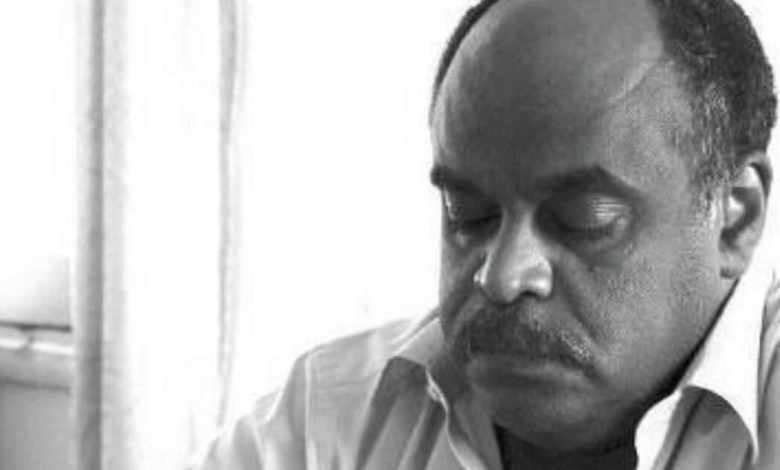Two Appeals and Two Proposals on Sudan’s War

Dr. Al-Shafie Khader Saeed
On the Sudan’s futile war of April 15, we differentiate between ending the war and ending the fighting. It is true that ending fighting and warring, meaning silencing the guns, is the gateway to ending the war, but it alone will not stop it and will not achieve peace and security, as the causes of its outbreak must be addressed and what prevents its recurrence should be established.
It is true that the burden of stopping the fighting falls on the leadership of the two warring parties, and from here comes the role and efforts of the international community and the regional community, and the various platforms such as the Jeddah platform and the IGAD platform, and the importance of achieving the proposed meeting between Al-Burhan and Hemedti, as stated in the resolutions of the IGAD summit meetings, with the emphasis that there are no guarantees that the outcome of this meeting will stop the fighting.
The issue is partly related to the lack of will on both sides, which we touched on in our previous article. It is true that the two parties and the pressure they may be subjected to in any meeting between them may be able to stop the fighting, but they alone cannot stop the war, and they alone cannot determine the fate and future of Sudan after the war.
The greatest and main responsibility for stopping this devastating war falls with the Sudanese civil forces. They are entrusted with designing and leading the political process after the fighting stops, without which the war will not end.
Designing the political process begins with formulating the vision to stop the war, meaning answering many questions about the future of the army leadership and the future of the Rapid Support Forces, accountability for the crime of igniting the war and the violations that accompanied it, and a period of transition under civilian leadership away from any partnership with any of the warring sides, etc. This is one of the questions we discussed in several past articles.
The formulation of the vision and the design of the political process are not an obligation of a few, carried out by a section of the civil forces and neglected by the other sections. Rather, they require the unity of the civil forces, and without this unity the war will not stop.
Here comes our first appeal to both the Coordination of Democratic Civil Forces “Taqaddum” and the civil forces outside it, to engage together in the political and procedural preparation for an all-inclusive conference of political and civil forces, to be held soonest possible, with the condition of reaching all parties of these forces, and not excluding any party or group, regardless of any previous political positions it had, as long as it now stands against war, and as long as the group is based on a concrete base working on the ground, involving everyone in the details of the preparation, and adhering to transparency in all work steps, which must be far from any external, international or regional influences. Once again, I reiterate my conviction that the leaders of unions and elected federations must be at the heart of this work.
The situation in Sudan is deteriorating, and the Sudanese state is on its way to collapse and perhaps heading to division. This will only be prevented by the unity and cohesion of the civil forces, which is a unity that is needed now more than at any other time.
Therefore, if it is not possible to hold the unification conference referred to above for any reason, I suggest that “Taqaddum” forces, the trade union front, the resistance committees/emergency rooms, the retired officers of the regular forces, and any of the other civilian components, call for it, on the initiative of one of these forces, and away from direct interference of regional and international powers to form a working group that agrees around a vision to stop the war and take it to direct meetings with both parties to the fighting and the international and regional community. At the same time, this vision constitutes material for organizing popular resistance inside the country against the war and attempts to suppress the December 2018 revolution.
In May of last year, the meeting of the African Peace and Security Council, at the level of heads of member states of the Council, approved the road map adopted by the African Union as an initiative to stop the war raging in Sudan.
In its final communiqué, the summit meeting stressed the paramount importance of a single, comprehensive and unified peace process, in coordination with, and under the joint auspices of, the African Union, IGAD, the League of Arab States and the United Nations, along with like-minded partners.
It pointed out that the multiplicity and spread of mediation and initiatives will not serve the collective will of the Sudanese people. Then, in a subsequent meeting, the matter was entrusted to IGAD, which formed a quartet committee. The committee was then expanded by adding almost all international and regional actors.
Originally, the matter began with the Jeddah platform and only two intermediaries, the Kingdom of Saudi Arabia and the United States, before IGAD and the African Union were added to the platform. In addition to all of this, there is an initiative by Sudan’s neighboring countries, despite its faint voice.
Recently, the Secretary-General of the United Nations sent a personal envoy to discuss with those involved in the issue of Sudan. It was clear to us and to many that this regional and international scene, with its multiplicity of initiatives and platforms is ambiguous and confusing.



